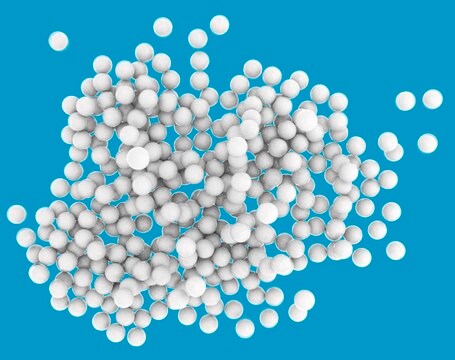FR180380014
Estapor® White Carboxylated microspheres
K1-030 White COOH PS 10%, White carboxylated microspheres 300nm, Latex Turbidimetric Immunoassay - For ordering, click "Request more information"
Sinónimos:
Carboxylic Beads, Carboxylic Particles, Plain Particles
About This Item
Productos recomendados
Quality Level
manufacturer/tradename
Estapor®
packaging
bottle of 10ml-10L
concentration
10% solids
technique(s)
latex turbidmetry immunoassay (LTIA): suitable
color
white
matrix
polymeric Poly-styrene-co-acrylate
bead diameter
0.270-0.330 μm±<5%
capacity
200-500 μeq/g surface charge density
functional group
carboxylic acid (COOH)
storage temp.
2-8°C
¿Está buscando productos similares? Visita Guía de comparación de productos
General description
Application
Legal Information
Storage Class
10 - Combustible liquids
wgk_germany
nwg
Certificados de análisis (COA)
Busque Certificados de análisis (COA) introduciendo el número de lote del producto. Los números de lote se encuentran en la etiqueta del producto después de las palabras «Lot» o «Batch»
¿Ya tiene este producto?
Encuentre la documentación para los productos que ha comprado recientemente en la Biblioteca de documentos.
Nuestro equipo de científicos tiene experiencia en todas las áreas de investigación: Ciencias de la vida, Ciencia de los materiales, Síntesis química, Cromatografía, Analítica y muchas otras.
Póngase en contacto con el Servicio técnico